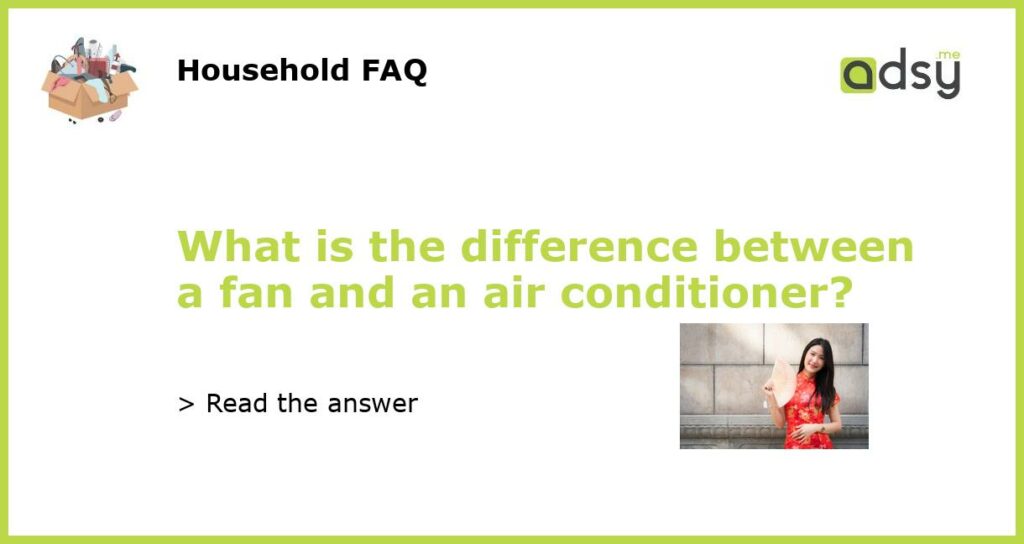Fan vs. Air Conditioner: Understanding the Differences
When it comes to cooling down our living spaces, we often have two primary options: using a fan or an air conditioner. While both provide relief from the heat, there are several key differences between the two. In this article, we’ll explore the distinctions between a fan and an air conditioner, including their functionality, efficiency, cost, and environmental impact.
Functionality: How They Work
A fan and an air conditioner differ in their mechanisms of cooling a room. A fan works by simply circulating the air in a room. It does not actually cool the air, but rather creates a breeze that helps evaporate moisture from our skin, making us feel cooler. On the other hand, an air conditioner extracts heat and moisture from the air through a refrigeration cycle. It cools down the air by passing it over cold evaporator coils and then blows the chilled air back into the room. Air conditioners also dehumidify the air, making it feel more comfortable.
Efficiency: Cooling Power and Energy Consumption
When it comes to cooling power, air conditioners are generally more effective than fans. Air conditioners can lower the temperature of a room by a significant amount, often by several degrees. Fans, on the other hand, do not actually cool the air – they simply circulate it, providing a cooling sensation by increasing the evaporation of sweat. However, fans use significantly less energy than air conditioners. While an air conditioner can consume a substantial amount of electricity, especially when cooling large spaces, fans are much more energy-efficient.
Cost: Initial Investment and Operational Expenses
Cost is another important factor to consider when choosing between a fan and an air conditioner. Fans are generally much more affordable to purchase compared to air conditioners. In addition to the lower initial cost, fans also have lower operational expenses. They consume significantly less energy, resulting in lower monthly electricity bills. On the other hand, air conditioners, particularly more advanced models, can be quite expensive to purchase and operate, especially in hotter climates or during peak summer months.
Environmental Impact: Sustainability and Energy Efficiency
The environmental impact is one area where fans clearly surpass air conditioners. Fans do not require the use of any refrigerants or harmful chemicals for cooling. They also have a smaller carbon footprint due to their lower energy consumption. Air conditioners, on the other hand, use refrigerants that contribute to the depletion of the ozone layer and can release greenhouse gases. However, it’s worth noting that modern air conditioners are becoming more energy-efficient and environmentally friendly with the use of greener refrigerants and advanced technology.
Making the Right Choice
When deciding between a fan and an air conditioner, consider your specific needs and priorities. If you’re looking for an affordable and energy-efficient option that provides a cooling sensation, a fan may be the more suitable choice. On the other hand, if you need significant temperature reduction and dehumidification, particularly in hot and humid climates, an air conditioner would be the better option, despite its higher upfront cost and environmental impact. Ultimately, both fans and air conditioners serve the purpose of keeping us cool and comfortable; it’s just a matter of choosing the one that best fits your needs.






